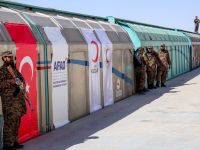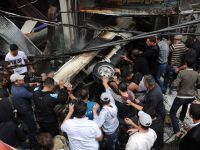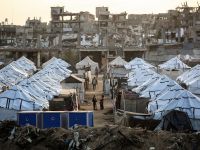NATO defense ministers were meeting Tuesday to define their relationship with the European Union's planned rapid reaction force after the EU struck a last-minute accord with NATO-member Turkey.
The meeting, 48 hours before an EU summit in southern France, had been clouded by grumblings from Turkey that it was being unduly pressured over its application to join the EU. EU pre-enlargement reform is a top priority of the summit.
Turkey, claiming new conditions for its EU candidacy were being added on, had angrily hinted it would use its NATO membership to block NATO-EU cooperation.
But EU foreign ministers late Monday reached agreement on a partnership accord with Turkey for its eventual entry into the EU after fudging the wording on thorny Cyprus and Aegean issues, and Turkey quickly agreed by telephone.
That cleared the air for the NATO ministers to talk about cooperation with the EU's fledgling European Security and Defense Policy (ESDP), the first pillar of which is a 60,000-troop rapid reaction force to be operative by 2003.
The force was mandated by the EU summit in Helsinki a year ago, to be able to jump into Kosovo-like hot spots within 60 days and remain a year.
Although independent of US-dominated NATO in theory, the force will need access to NATO for heavy hardware, high-tech satellite communications and strategic transport.
But the US, for one, wants NATO to handle operational planning for the rapid reaction force planning before turning over the keys to the NATO arsenal.
US Defense Secretary William Cohen told reporters on his plane heading here that the EU risked weakening NATO and its ties to the US if it insisted on separate planning operations for the rapid reaction force.
Although Washington is strongly committed to NATO -- and will be regardless of who becomes the next US president -- "much depends on how the Europeans in fact shape the ESDP," Cohen said.
Cohen, who is to meet during the two-day meeting here with Russian Defense Minister Igor Sergeyev, said he would raise US concerns about Moscow's plans to resume arms sales to Iran.
This will be Sergeyev's first trip to a NATO meeting since before the Kosovo crisis. Russia-NATO ties resumed this year after a hiatus over the NATO bombing in Kosovo, but still remain cool -- BRUSSELS (AFP)
© 2000 Al Bawaba (www.albawaba.com)







